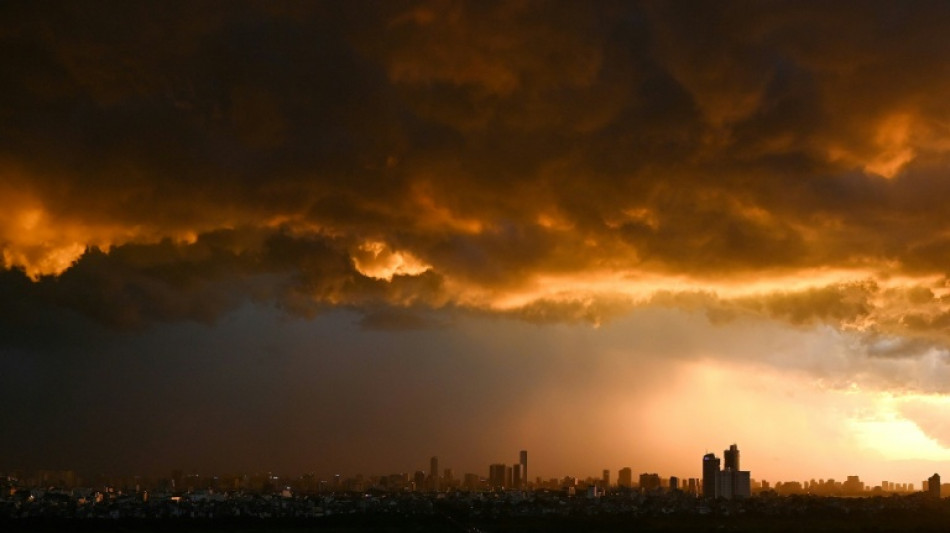
-
 Australia's Green becomes most expensive overseas buy in IPL history
Australia's Green becomes most expensive overseas buy in IPL history
-
VW stops production at German site for first time

-
 Man City star Doku sidelined until new year
Man City star Doku sidelined until new year
-
Rome's new Colosseum station reveals ancient treasures

-
 EU eases 2035 combustion-engine ban to boost car industry
EU eases 2035 combustion-engine ban to boost car industry
-
'Immense' collection of dinosaur footprints found in Italy
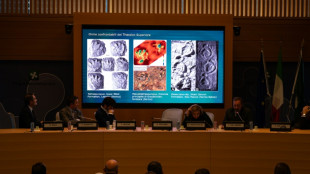
-
 US unemployment rises further, hovering at highest since 2021
US unemployment rises further, hovering at highest since 2021
-
Senators grill Trump officials on US alleged drug boat strikes
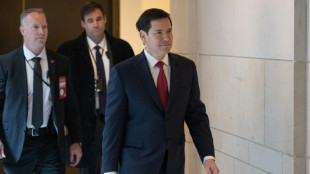
-
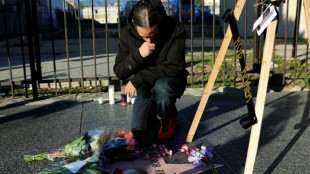 Filmmaker Rob Reiner's son to be formally charged with parents' murder
Filmmaker Rob Reiner's son to be formally charged with parents' murder
-
Shift in battle to tackle teens trapped in Marseille drug 'slavery'
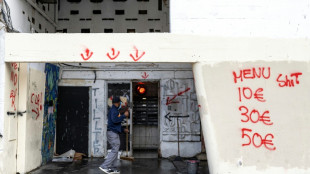
-
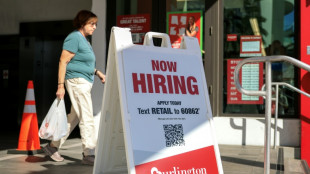 Stocks retreat on US jobs, oil drops on Ukraine hopes
Stocks retreat on US jobs, oil drops on Ukraine hopes
-
Manchester United 'wanted me to leave', claims Fernandes

-
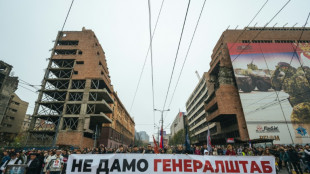 Serbian President blames 'witch hunt' for ditched Kushner hotel plan
Serbian President blames 'witch hunt' for ditched Kushner hotel plan
-
Man who hit Liverpool parade jailed for over 21 years

-
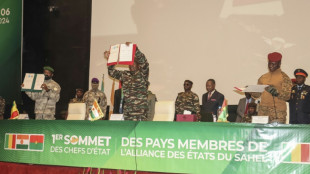 Sahel juntas would have welcomed a coup in Benin: analysts
Sahel juntas would have welcomed a coup in Benin: analysts
-
PSG ordered to pay around 60mn euros to Mbappe in wage dispute

-
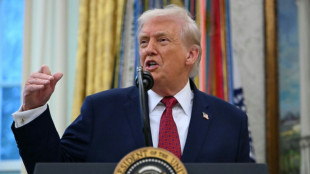 BBC says will fight Trump's $10 bn defamation lawsuit
BBC says will fight Trump's $10 bn defamation lawsuit
-
Stocks retreat ahead of US jobs, oil drops on Ukraine hopes
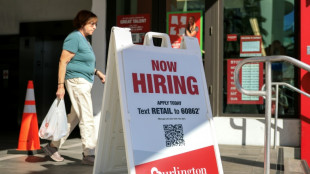
-
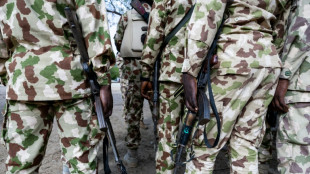 Suicide bomber kills five soldiers in northeast Nigeria: sources
Suicide bomber kills five soldiers in northeast Nigeria: sources
-
EU set to drop 2035 combustion-engine ban to boost car industry

-
 Australia's Green sold for record 252 mn rupees in IPL auction
Australia's Green sold for record 252 mn rupees in IPL auction
-
Elusive December sun leaves Stockholm in the dark
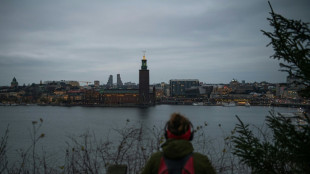
-
 Brendan Rodgers joins Saudi club Al Qadsiah
Brendan Rodgers joins Saudi club Al Qadsiah
-
Thailand says Cambodia must announce ceasefire 'first' to stop fighting
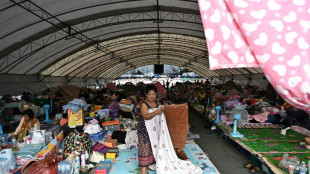
-
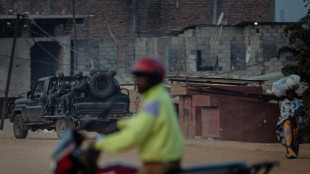 M23 militia says to pull out of key DR Congo city at US's request
M23 militia says to pull out of key DR Congo city at US's request
-
Thousands of glaciers to melt each year by mid-century: study
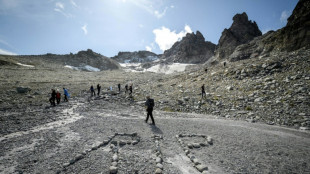
-
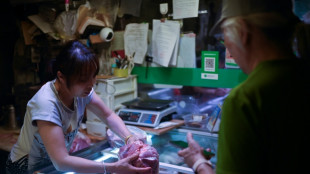 China to impose anti-dumping duties on EU pork for five years
China to impose anti-dumping duties on EU pork for five years
-
Nepal starts tiger census to track recovery

-
 Economic losses from natural disasters down by a third in 2025: Swiss Re
Economic losses from natural disasters down by a third in 2025: Swiss Re
-
Indonesians reeling from flood devastation plea for global help
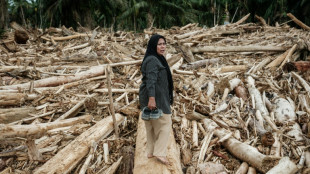
-
 Timeline: How the Bondi Beach mass shooting unfolded
Timeline: How the Bondi Beach mass shooting unfolded
-
On the campaign trail in a tug-of-war Myanmar town

-
 Bondi Beach suspect visited Philippines on Indian passport
Bondi Beach suspect visited Philippines on Indian passport
-
Kenyan girls still afflicted by genital mutilation years after ban
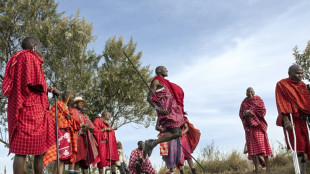
-
 Djokovic to warm up for Australian Open in Adelaide
Djokovic to warm up for Australian Open in Adelaide
-
Man bailed for fire protest on track at Hong Kong's richest horse race

-
 Men's ATP tennis to apply extreme heat rule from 2026
Men's ATP tennis to apply extreme heat rule from 2026
-
Cunningham leads Pistons past Celtics, Nuggets outlast Rockets

-
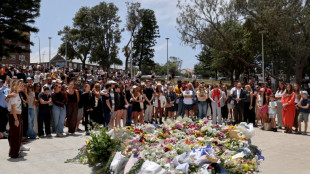 10-year-old girl, Holocaust survivors among Bondi Beach dead
10-year-old girl, Holocaust survivors among Bondi Beach dead
-
Steelers edge towards NFL playoffs as Dolphins eliminated

-
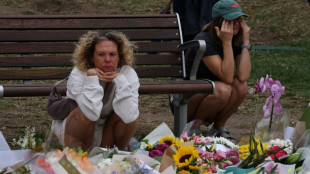 Australian PM says 'Islamic State ideology' drove Bondi Beach gunmen
Australian PM says 'Islamic State ideology' drove Bondi Beach gunmen
-
Canada plow-maker can't clear path through Trump tariffs

-
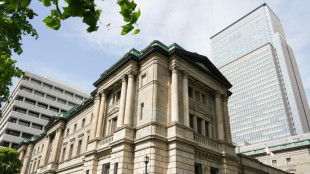 Bank of Japan expected to hike rates to 30-year high
Bank of Japan expected to hike rates to 30-year high
-
Cunningham leads Pistons past Celtics

-
 Stokes tells England to 'show a bit of dog' in must-win Adelaide Test
Stokes tells England to 'show a bit of dog' in must-win Adelaide Test
-
EU to unveil plan to tackle housing crisis

-
 EU set to scrap 2035 combustion-engine ban in car industry boost
EU set to scrap 2035 combustion-engine ban in car industry boost
-
Australian PM visits Bondi Beach hero in hospital

-
 'Easiest scam in the world': Musicians sound alarm over AI impersonators
'Easiest scam in the world': Musicians sound alarm over AI impersonators
-
'Waiting to die': the dirty business of recycling in Vietnam

| CMSC | 0.21% | 23.35 | $ | |
| SCS | 0.12% | 16.14 | $ | |
| CMSD | -0.06% | 23.35 | $ | |
| BCC | 1.59% | 76.545 | $ | |
| NGG | -0.71% | 75.492 | $ | |
| RIO | 0.43% | 76.15 | $ | |
| BTI | -0.48% | 57.465 | $ | |
| RYCEF | -1.71% | 14.65 | $ | |
| GSK | -0.65% | 48.92 | $ | |
| AZN | -0.83% | 90.805 | $ | |
| RBGPF | 4.1% | 81 | $ | |
| VOD | 0.17% | 12.721 | $ | |
| RELX | -0.44% | 40.9 | $ | |
| BP | -3.59% | 34.03 | $ | |
| JRI | -0.17% | 13.537 | $ | |
| BCE | -0.25% | 23.55 | $ |

UN members to sign cybercrime treaty opposed by rights groups
Countries sign their first UN treaty targeting cybercrime in Hanoi on Saturday, despite opposition from an unlikely band of tech companies and rights groups warning of expanded state surveillance.
The new global legal framework aims to strengthen international cooperation to fight digital crimes, from child pornography to transnational cyberscams and money laundering.
Vietnam's President Luong Cuong has described the signing as a "historic milestone".
It sends "a strong message about our determination to fight cybercrime and build a world of peace, justice, and the rule of law, for the benefit of today's and future generations", he said last month.
The UN Convention against Cybercrime was first proposed by Russian diplomats in 2017, and approved by consensus last year after lengthy negotiations.
Critics say its broad language could lead to abuses of power and enable the cross-border repression of government critics.
"There were multiple concerns raised throughout the negotiation of the treaty around how it actually ends up compelling companies to share data," said Sabhanaz Rashid Diya, founder of the Tech Global Institute think tank.
"It's almost rubber-stamping a very problematic practice that has been used against journalists and in authoritarian countries," she told AFP.
- 'Weak' safeguards -
The convention will enter into force when ratified by 40 member states, following the signing ceremony in the Vietnamese capital attended by UN chief Antonio Guterres.
Vietnam's government said this week that 60 countries were registered for the official signing, without disclosing which ones.
But the list will probably not be limited to Russia, China and their allies.
"Cybercrime is a real issue across the world," Diya said. "I think everybody's kind of grappling with it."
The far-reaching online scam industry, for example, has ballooned in Southeast Asia in recent years, with thousands of scammers estimated to be involved and victims worldwide conned out of billions of dollars annually.
"Even for the most democratic states, I think they need some degree of access to data that they're not getting under existing mechanisms," Diya told AFP.
Democratic countries might describe the UN convention as a "compromise document", as it contains some human rights provisions, she added.
But these safeguards were slammed as "weak" in a letter signed by more than a dozen rights groups and other organisations.
- Tech sector -
Big technology companies have also raised concerns.
The Cybersecurity Tech Accord delegation to the treaty talks, representing more than 160 firms including Meta, Dell and India's Infosys, will not be present in Hanoi, its head Nick Ashton-Hart said.
Among other objections, those companies previously warned that the convention could criminalise cybersecurity researchers and "allows states to cooperate on almost any criminal act they choose".
Potential overreach by authorities poses "serious risks to corporate IT systems relied upon by billions of people every day", they said during the negotiation process.
In contrast, an existing international accord, the Budapest Convention on Cybercrime, includes guidance on using it in a "rights-respecting" way, Ashton-Hart said.
The location for the signing has also raised eyebrows, given Vietnam's record of crackdowns on dissent.
"Vietnamese authorities typically use laws to censor and silence any online expression of views critical of the country's political leadership," said Deborah Brown of Human Rights Watch.
"Russia has been a driving force behind this treaty and will certainly be pleased once it's signed," she told AFP.
"But a significant amount of cybercrime globally comes from Russia, and it has never needed a treaty to tackle cybercrime from within its borders," Brown added.
"This treaty can't make up Russia's lack of political will in that regard."
F.Pedersen--AMWN